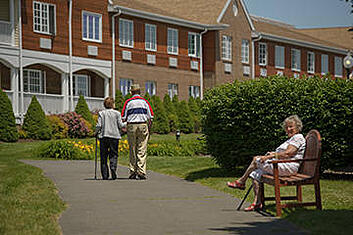
Diabetes can be a very confusing and overwhelming condition. It is important as you manage your health that you become aware of ways to prevent this disease and manage it if you are diagnosed.
People who are overweight, inactive, and over age 45 are at a higher risk for developing Type 2 Diabetes. Diabetes prevention is a huge factor in positive senior health outcomes.
Diabetes is a serious disease that strikes nearly 26 million children and adults in the United States, and a quarter of them—seven million—do not even know they have it. An additional 79 million, or one in three American adults, are pre-diabetic, which puts them at high risk for developing type 2 diabetes.
At United Methodist Homes, health is extremely important to our residents and we encourage active lifestyles and healthy eating habits. Diabetes prevention and control can be difficult to manage, but with regular consultation with your doctor and by following these tips, your diabetes can be controlled for better health.
Prevention
Knowing that you are susceptible to having diabetes is important. With this knowledge, you can take the correct steps to prevent it. Through healthy eating, diet, weight management, and regular exercise, you can help prevent diabetes and stay healthy.
Quite often, simply by eating healthier and exercising you can decrease the chances of developing other diseases. Even losing 10 pounds can reduce the risk of developing diabetes.
Regular visits to your doctor will also help to decrease your chances of developing diabetes. They can assess symptoms and suggest ways to be healthier, which would be specific to you.
Control
If you have already been diagnosed with Type 2 diabetes there are several ways to decrease the effect diabetes has on the quality of your life. Becoming educated on your condition will allow you to know what actions to take to manage it better. Seeing a registered dietitian will help you understand more about healthy eating and ways to improve your quality of life.
Simple things like counting carbs and eating lots of fiber, fruit and vegetables will help manage your diabetes. Monitoring the number of carbs you eat will keep your blood sugar levels consistent on a day-to-day basis.
Exercising regularly will, again, help you maintain a healthier lifestyle and improve your body functions overall. Even walking for 30 minutes a day will help.
Need Help?
If you'd like more information about health initiatives at United Methodist Homes, or would like information about assisted living, contact us and we'd be happy to help. Also, if you click the photo below you can download our free ebook with more tips and information about heart disease and prevention!







